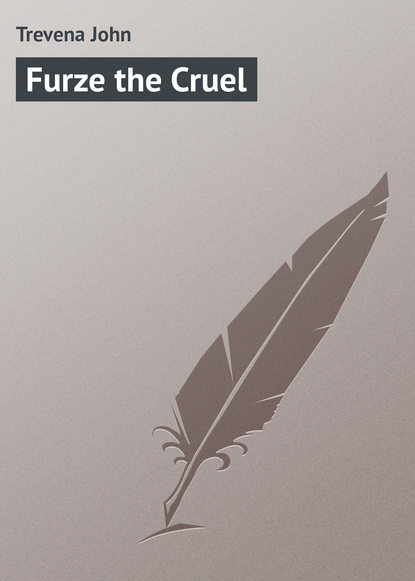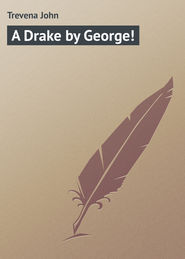По всем вопросам обращайтесь на: info@litportal.ru
(©) 2003-2024.
✖
Furze the Cruel
Настройки чтения
Размер шрифта
Высота строк
Поля
"Ole Will Chanter had a fiddle like thikky one. Du'ye mind, Peter?"
Indignant voices called for silence, but Mary only looked about in some amazement. She couldn't think what the people were driving at. As she was not being entertained there was nothing to prevent her from talking, and it was only natural that she should speak to Peter; and if the folks in front did not approve of her remarks they need not listen. The violinist had dropped her arms in despair; but when she perceived silence was restored she tried again.
"Used to play 'en in Peter Tavy church," continued Mary, with much relish. "Used to sot up in the loft and fiddle cruel. Didn't 'en, Master? Don't ye mind ole Will Chanter what had a fiddle like thikky one? His brother Abe sot up wi' 'en, and blowed into a long pipe. Made a cruel fine noise, them two."
Mary was becoming anecdotal, and threatening to address the audience at some length, so the violinist had to give up and make way for a vocalist with sufficient voice to drown these reminiscences of a former generation.
After the concert there were disturbances outside. One faction cheered the performers; another hooted them. Then a light of Ebenezer kindled into religious fire and hit an Anglican postman in the eye. The response of the Church Militant loosened two Nonconformist teeth. Chegwidden reappeared on horseback, swaying from side to side, holding on by the reins, and raising the cry of down with everything except Ebenezer and liquor-shops.
Pendoggat stood aloof, looking on, hoping there would be a fight. He did not mix in such things himself. It was his custom to stand in the background and work the machinery from outside. He liked to see men attacking one another, to watch pain inflicted, and to see the blood flow. Turning to the man whose mouth had been damaged he muttered: "Go at him again."
"I'm satisfied," came the answer.
"He called you a dirty monkey," lied Pendoggat.
The insult was sufficient. The Anglican postman was walking away, having fought a good fight for the faith that was in him, by virtue of two shillings a week for various duties, and his Opponent seizing the opportunity attacked him vigorously from the rear. Peter and Mary watched the conflict, and their savage souls rejoiced. This was better than all the pianos and fiddles in the world. They felt at last they were getting value for their free tickets.
Sport was terminated by the sudden appearance of the Maggot. He had been drafting a prospectus of the "Tavy Nickel Mining Company, Limited," and had issued forth to look for the managing director. He stopped the fight and lectured the combatants in spiritual language. He comprehended how the ex-chapel had been desecrated that night by godless people, and he appreciated the zeal which had prompted a member of his congregation to defend its sanctity; but he explained that it was not lawful for Christians to brawl upon the streets. To take out a summons for assault was far holier. The man with the loosened teeth explained that he should do so. It was true he had incited the postman to fight by striking him first; but then he had struck him with Christian charity in the eye, which entailed only a slight temporary discomfort and no permanent loss; whereas the postman had struck him with brutal ferocity on the mouth, depriving him of the services of two teeth; and had moreover added obscene language, as could be proved by impartial witnesses. Pezzack assured him that the teeth Bad fallen in a good cause; men and women had been tortured and burnt at the stake for their religion; and he quoted the acts of Bloody Mary, that bigoted lady who has become the hardy perennial of Nonconformist sermons, with a strong emphasis upon the qualifying, adjective. The champion went away delighted. He had won his martyr's crown, and his teeth were not so very loose after all. A little beer would soon tighten them.
The crowd was dwindling away with its grievances. The folks would chatter furiously for a few days; then the affair would drop and be forgotten, and a fresh scandal would fill the vacancy. They would never bite so long as they had liberty to bark. Chegwidden had galloped off across the moor in his usual wild way. Every week he would visit some inn, upon what might have been called his home circuit, and at closing time would commit his senseless body to his horse with the certain hope of being carried home. To gallop wildly over Dartmoor at night might be ranked as an almost heroic action. The horse had brains fortunately. Chegwidden was only the clinging monkey upon its back. The farmer had fallen on several occasions, but had escaped with bruises. One night he would break his neck, or crack his head upon a boulder, and die as he had lived – drunk. Drunkenness is not a vice upon Dartmoor; nor a fault even. It is a custom.
The Maggot found Pendoggat. They greeted one another in a fraternal way, then began to walk down from the village. The night was clear ahead of them, but above Brentor, with its church, which looked rather like an exaggerated locomotive in that light, the sky, or "widdicote," as Mary might have called it, was red and lowering.
"Well, what about business?" said Pendoggat.
"I am not finding it easy, Mr. Pendoggat," said the minister. "Folks are nervous, and, as you know, there is not much money about. But they trust me, Mr. Pendoggat. They trust me," he repeated fervently.
"Got any promises?"
"A few half-promises. I could do better if I was able to show them the mine. If you would come forward, with your wisdom and experience, I think we should do well. I mentioned that you were interested."
"I told you to keep my name out of it," said Pendoggat.
"But that is impossible. I cannot tell a lie, Mr. Pendoggat," said Eli, with the utmost deference.
"You're suspicious," said the other sharply. "You don't trust me. Say it out, Pezzack."
"I do trust you, Mr. Pendoggat. I have given you this 'and," said Eli, extending a clay-like slab. "I have seen with my own eyes the sides of that cave gleaming with precious metal like the walls of the New Jerusalem. I can take your 'and now, and look you in the heye, and say 'ow I trust you. We 'ave prayed side by side, and you 'ave always prayed fair. Now that we are working side by side I know you'll work fair. But I 'ave thought, Mr. Pendoggat, 'ow you seem to be putting too much upon me."
"I'll tell you how it is. I'm pushed," Pendoggat muttered. "Nobody knows it, but I'm deep in debt. Do you think I'd be such a fool as to give this find of mine away for nothing, as you might say, unless I'd got to?" he went on sullenly. "I've known of it for years. I've spent days planting willows and fern about the entrance to that old shaft, to close it up and make folk forget it's there. I meant to bide my time till I could get mining folk in London to take it up and make a big thing out of it. I'm a disappointed man, Pezzack. I'm in debt, and I've got to suffer for it."
He paused, scowling sullenly at his companion.
"My 'eart bleeds for you, Mr. Pendoggat," said simple Eli. He thought that was a good and sympathetic phrase, although he somewhat exaggerated the actual state of his feelings.
"I've kept 'em quiet so far," said Pendoggat. "I've paid what I can, and they know they can't get more. But if 'twas known about this mine, and known I was running it, they'd be down on me like flies on a carcase, and would ruin the thing at once. The only chance for me was to look out for a straight man who could float the scheme in his name while I did the work. I knew only one man I could really trust, and that man is you."
"It is very generous of you, Mr. Pendoggat," said the buttered Eli.
They had reached the railway bridge, and there stopped, being upon the edge of the moor. Beneath them was Brentor station gone to sleep; beyond, in its cutting, that of Mary Tavy. The lines of two rival companies ran needlessly side by side, silently proclaiming to the still Dartmoor night the fact that railway companies are quite human and hate each other like individuals. Pendoggat was looking down as usual, therefore his eyes were fixed upon the rival lines. Possibly he found something there to interest him.
"I'll get you some samples. You can take them about with you," he went on. "We'll have a meeting too."
"At the Barton?" suggested Eli.
"The chapel," said Pendoggat.
"Commencing with a prayer-meeting," said Eli. "That is a noble thought, Mr. Pendoggat. We will seek a blessing on the work."
"The chapel must be rebuilt," said Pendoggat.
"The Lord's work first. Yes, that is right. That is like you, Mr. Pendoggat. I will communicate with some friends in London. I 'ave an uncle who is a retired grocer. He lives at Bromley, Mr. Pendoggat. He will invest part of his savings, I am convinced. He has confidence in me. He had me educated for the ministry. He will persuade others to invest, perhaps."
Pendoggat moved forward, and set his face towards the moor. "I must get on," he said. "I'll see you on Sunday. Have something to tell me by then."
"Let us seek a blessing before we part," said Pezzack.
Pendoggat turned back. He was always ready to obtain absolution. They stood upon the bridge, removed their hats, while Eli prayed with vigour and sincerity. He did not stop until the rumble of the night mail sounded along the lines and the metals began to hum excitedly. The "widdicote" above St. Michael's was still red and lowering. The church might have been a furnace, emitting a strong glow from fires within its tower.
CHAPTER VII
ABOUT FAIRYLAND
By the time Boodles was sixteen she was shaped and polished. Weevil had done what he could; not much, for the poor old thing was neither learned nor rich; and she had gone to Tavistock, where various arts had been crammed into her brain, all mixed up together like the ingredients of a patent pill. Boodles knew a good deal for seventeen; but Nature and Dartmoor had taught her more than the school-mistress. She was a fresh and fragrant child, with no unhealthy fancies; loving everything that was clean and pretty; loathing spiders, and creeping things, and filth in general; and longing ardently already to win for herself a name and a soul a little higher than the beetles. They were presumptuous longings for a child of passion, who did not know her parents, or anything about her origin beyond the fact that she had been thrown out in a bundle of fern, and taken in and cared for by Abel Cain Weevil.
At the tender age of fourteen Boodles received her love-wound. It was down by the Tavy, where the water swirls round pebbles and rattles them against its rocks below Sandypark. Her love-affair was idyllic, and therefore dangerous, because the idyllic state bears the same resemblance to rough and brutal life as the fairy-tale bears to the true story of that life. The tales begin with "once upon a time," and end with "they lived happily ever after." The idyllic state begins in the same way, but ends, either with "they parted with tears and kisses and never saw each other again," or "they married and were miserable ever afterwards." Only children can blow idyll-bubbles which will float for a time. Elderly people try, but they only make themselves ridiculous, and the bubbles will not form. People of thirty or over cannot play at fairy-tales. When they try they become as fantastic a sight as an old gentleman wearing a paper hat and blowing a penny trumpet. Shakespeare, who knew everything about human nature that men can know, made his Romeo and Juliet children, and ended their idyll as such things must end. Customs have changed since; even children are beginning to understand that life cannot be made a fairy-tale; and Romeo prefers the football field to sighing beneath a school-girl's balcony; and Juliet twists up her hair precociously and runs amok with a hockey-stick.
Still fairy-tales lift their mystic blooms to the moon beside the Tavy, and Boodles had seen those flowers, and wandered among them very delicately. The boy was Aubrey Bellamie, destined for the Navy, and his home was in Tavistock. He had come into the world, amid an odour of respectability, two years before Boodles had crept shamefully up the terrestrial back stairs. All he knew about Boodles was the fact that she was a girl; that one all-sufficient fact that makes youths mad. He knew, also, that her head was glorious, and that her lips were better than wine. He was a clean, pretty boy; like most of the youths in the Navy, who are the good fresh salt of Devon and England everywhere. Boodles came into Tavistock twice a week to be educated, and he would wait at the door of the school until she came out, because he wanted to educate her too; and then they would wander beside the Tavy, and kiss new knowledge into each other's young souls. The fairy-tale was real enough, because real life had not begun. They were still in "once upon a time" stage, and they believed in the happy ending. It was the age of delusion; glorious folklore days. There was enough fire in them both to make the story sufficiently life-like to be mistaken for the real thing. Aubrey's parents did not know of the love-affair then; neither did Weevil. In fairy-tales relations are usually wicked creatures who have to be avoided. So for months they wandered beside the river of fairyland, and plucked the flowers of that pleasant country which were gleaming with idyllic dew.
"I can't think why you love my head so," Boodles had protested, when a thunderstorm of affection had partially subsided. "It's like a big tangle of red seaweed. The girls at the school call me Carrots."
"I should like to hear them," said Aubrey fiercely; "Darling, it's the loveliest head in the world."
And then he went on to talk a lot of shocking nonsense about flowers and sunsets, and all other wondrous flaming things, which had derived their colour and splendour from the light of his sweetheart's head, and from none other source or inspiration whatsoever.
"If I was a boy I shouldn't love a girl with red hair. There are such a lot of girls you might love. Girls with silky flaxen hair, and girls with lovely brown hair – "
"They are only girls," said Aubrey disdainfully. "Not angels."
"Do angels have red hair?" asked Boodles.
"Only a very few," said the boy. "Boodles – and one or two others whose names I can't remember just now. It's not red hair, sweetheart. It's golden, and your beautiful skin is golden too, and there is a lot of gold-dust scattered all over your nose."
"Freckles," laughed Boodles. "Aubrey, you silly! Calling my ugly freckles gold-dust! Why, I hate them. When I look in the glass I say to myself: 'Boodles, you're a nasty little spotted toad.'"
"They are just lovely," declared the boy. "They are little bits of sunshine that have dropped on you and stuck there."
"I'm not sticky."









